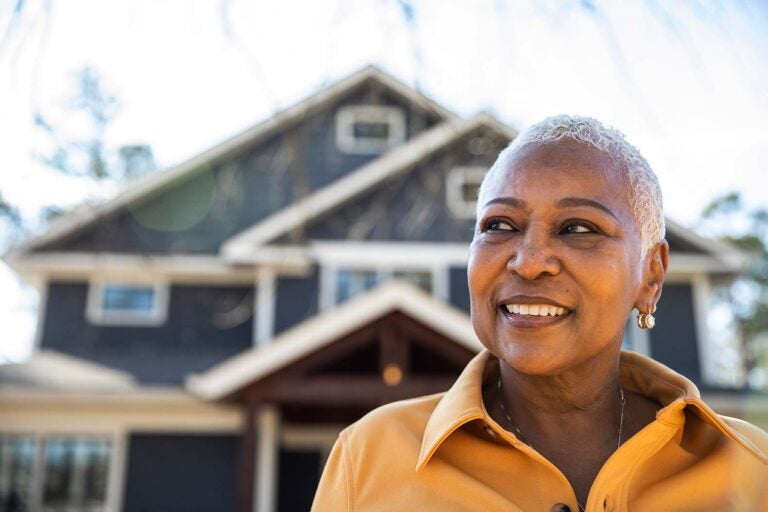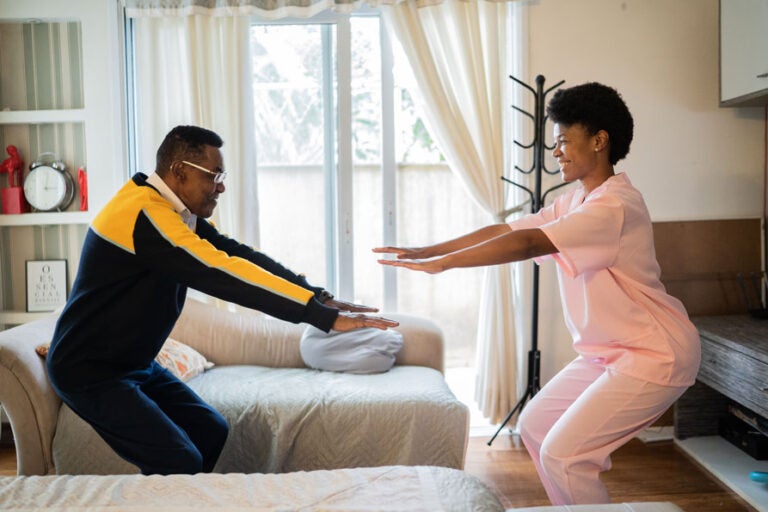Homeownership in retirement comes with many unique challenges. Whether to stay in your house during your retirement years is a major decision that can affect your finances, health, and wellbeing as you age.
“It’s a complicated question because it involves emotions and decades of memory,” says Nancy Schwartz, founder and transformational strategist for Envision Healthy Retirement in the New York metro area. “Living in the right place can add to your longevity and promote healthy retirement lifestyles. And likewise, the wrong place can shorten your longevity and shorten the aging process. I’ve seen it with my own eyes.”
There is no one-size-fits-all recommendation in retirement planning, so Schwartz recommends hiring professionals such as real estate agents, accountants, and advisors to objectively assess your situation and map out the ramifications of various decisions.
Kimberly Strosnider, president and founder of Michigan-based Estate and Wealth Management Services LLC, emphasizes that while each person’s situation is unique, one thing everyone should focus strongly on is affordability.
Here are three questions you need to ask yourself as you consider homeownership in retirement.
1. Can You Afford to Stay in Your Home in Retirement?
Whether you stay put, downsize, switch to renting, or any other possible scenario will depend in part on your financial situation and what it can withstand as you age.
“If you still have a mortgage on [your house], are you going to be able to afford that?” Strosnider asks. “If a spouse passes away, can you still afford that once you lose Social Security or if the pension gets reduced?” If not, selling your home might be a wise choice.
Leveraging Home Equity
One element of affordability related to your home is how much of your money is tied up in this illiquid asset. You may have a lot of equity in your home, especially if you’ve paid off the mortgage, which could be great for your heirs but will do you little good if you don’t sell or find another way to leverage your equity.
“If you don’t have a nest egg put aside, does it make more sense to sell the home, get a smaller place, and then use that equity to help finance your retirement?” asks Strosnider.
Those retirees who anticipate falling short of having enough for discretionary spending to keep their ideal lifestyle should consider whether to pull equity out of their home, advises Larry Kotlikoff, professor of economics at Boston University and founder of Maxifi, a personal finance and retirement planning software.
“Let’s say you own a $1 million house, and you’re not going to sell it,” he says. “That $1 million is not going into discretionary spending. It’s going into holding cost (in effect, renting to yourself). And the rest of it is what you’re going to leave to your kids. You may be house-poor.”
Selling your home doesn’t mean you can’t take advantage of home equity loan options specifically for seniors. One option is to buy a new home with a home equity conversion mortgage (HECM), which will allow you to benefit from the profit of your sale and move into a home more suited to your needs without taking on new mortgage payments.
Other Home-Related Expenses to Expect
Breaking out all the potential expenses of homeownership in retirement can help you figure out how much it will cost to stay in your home as you age. You’re probably already accustomed to the standard costs of home ownership like upkeep and maintenance, property tax and mortgage payments, and other expenses like HOA dues and homeowner’s insurance.
How many things are you able to take care of yourself now that you’ll likely need to hire someone to help you with in the future? Consider who you might need to help you and what it will cost to hire gardeners, cleaning services, repair people, and even long-term in-home care.
2. Is Your Home Set Up for Aging?
One important aspect of deciding to age in place is to assess whether your home is suited to aging. These considerations will include looking at everything from the layout to the size.
Considerations like whether there is a way to make bedrooms accessible without stairs and whether there is an easy way to add safety features to bathrooms and stairways can help you determine if the house you have is suitable, or if the effort it will take to make it suitable is worth the effort.
You may also need to upgrade the house in various ways to maintain your mobility, such as putting a chair lift on the stairs, reconfiguring rooms, and adding safety bars in the shower.
Is the house a size that will allow you to handle day-to-day maintenance even as you get older? If you’re married or living with a partner, you should also consider how living alone would impact your ability to handle the responsibilities of living in this home.
Another aspect of suitability to consider is how close the home is to friends and family. Strong social connections are essential to aging well. If you stay in this home, does that choice impact these essential connections positively or negatively?
3. What Lifestyle Do You Envision in Retirement?
The lifestyle you want for your retirement will greatly impact whether you decide to stay in your home or not. Do you plan to put your feet up and relax, or do you see yourself out and about?
It’s helpful when imagining what your life will be like to think of retirement in phases. You’ll likely be much more active in early retirement than in your later years. If you want to spend the first decade of retirement traveling and will likely need a smaller house with less upkeep down the road, then downsizing now may make more sense than continuing to maintain a house that doesn’t suit your present or future needs.
“Many clients who come see me, their number one goal is to travel,” says Schwartz. “How much of a house do you need if you’re going to be traveling a lot?”
Make a Fully Considered Decision
It’s important to consider all the elements of your personal situation in making this decision, including the practicalities of each option and how you feel about it all. Financial, health, family, and lifestyle considerations are all major factors to weigh in considering what’s right for you as you approach homeownership in retirement.
“This is a huge decision that can affect your health and longevity,” says Schwartz. “I come back to: Take time, learn all you can, assess it, and make the best decision possible. And then find that love, safety, and belonging in your new or your same home again.”
Seniority is published by Finance of America Reverse LLC. The views expressed in this publication are those of the author alone and do not necessarily reflect the views and opinions of Finance of America Companies. This article is intended for general informational and educational purposes only and should not be construed as financial or tax advice. For more information about whether a reverse mortgage may be right for you, you should consult an independent financial advisor. For tax advice, please consult a tax professional.




